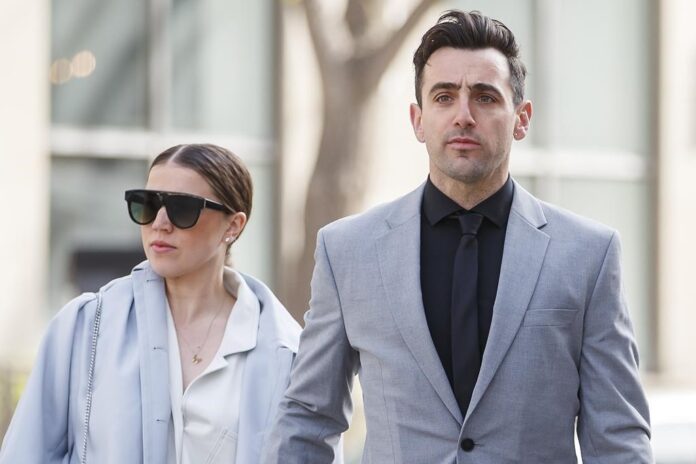Jurors in the sexual assault trial of Canadian musician Jacob Hoggard are considering whether they have reached an impasse after telling the court they remain deadlocked on “some” counts.
The jury initially indicated it was deadlocked Thursday morning and was sent back to deliberate further, then returned just over a day later saying it still could not agree on some of the counts.
Read more:
Jurors in Jacob Hoggard sex assault trial continue deliberations after reporting deadlock
Ontario Superior Court Justice Gillian Roberts told them to think about whether any further instruction or evidence review would help or if they are at a “genuine impasse.”
“There is no other jury that will ever be in a better position than you to decide this case,” the judge said.
“We know you’ve been working very hard … we expect you’re tired and fed up. But please don’t feel pressure that you need to be done with this by Friday _ there is no deadline.”
Earlier, both the Crown and defence urged the judge to instruct jurors to deliberate longer. While the panel has worked diligently, it has not spent that many hours deliberating, they argued. Deliberations began Tuesday afternoon and continued until roughly 9 p.m. that night, but have not stretched beyond dinner time since then.
Defence lawyer Megan Savard also argued the public attention focused on the case would make it very difficult to select another jury if a mistrial is declared on some counts.
Trending Stories
Father and son craft 19 custom caskets for the Uvalde shooting victims
With Harry and Meghan at Platinum Jubilee, is the Queen tying up ‘loose ends?’
Hoggard, the lead singer of the band Hedley, has pleaded not guilty to two counts of sexual assault causing bodily harm and one of sexual interference, a charge that refers to the sexual touching of someone under 16.
The Crown alleges Hoggard, 37, violently and repeatedly raped a teenage fan and a young Ottawa woman in separate incidents in the fall of 2016. It further alleges he groped the teen after a Hedley show in April 2016, when she was 15.
The defence argues the groping did not happen, and both sexual encounters were consensual. Defence lawyers contend the complainants made up rape allegations to cover up their embarrassment at having been rejected by Hoggard.
Earlier Friday, jurors sought more assistance from the court on how to use the evidence in a phone call between Hoggard and the second complainant that was recorded without her knowledge days after the alleged sexual encounter.
Roberts previously told them the call could be used to gauge the complainant’s demeanor and state of mind, and on Friday, they asked for clarification on the legal definition of “state of mind” and how to apply it in assessing the call.
The judge said state of mind is defined as “beliefs, perceptions, emotions or intention.”
Jurors could, but are not required to, infer from the call that the second complainant was upset, the judge told them. If they do, they should then ask themselves what she was upset about, she said.
The Crown alleges the complainant was upset because she had been sexually assaulted, while the defence argues it’s because she had been humiliated, Roberts said.
© 2022 The Canadian Press



